Mention the word refinery, and not long after comes the phrase ’challenging environment’. That’s because the UK’s refineries the few that remain are facing enormous competitive pressures which could threaten their future survival. There was hope that the recent government review into the UK’s refining and fuel imports sectors looking at the security of fuel supply would offer some element of support and a level playing field to the heavily regulated refining community, but alas it merely served to disappoint. What it did highlight however, was the fact that in 1975 there were 19 refineries operating in the UK, but by 2014 this had fallen to seven. This was reported in April before Murco announced it was to stop buying crude oil for processing at its Milford Haven Refinery, whose future is uncertain as a sale process is under way.
There is however, at least one refinery that believes it is well placed to survive into the long-term the Humber Refinery, owned by Phillips 66. It is a comforting thought for the 320 Jet dealers it supplies - and Pete George, the company’s managing director, UK & Ireland marketing, who last year announced plans to boost the number of Jet-branded sites by 30% within five years. Security of supply and product quality are a key selling point for the brand, according to Guy Pulham, manager, regional sales at Phillips 66.
Julian Stoll, an engineer with nearly 25 years’ experience in the industry, was appointed general manager of Humber Refinery in December 2013. Uprooting himself and his family from a 12-year stint in the US at short notice, he is however glad to be back at the refinery where he spent many of his early years. "The Humber Refinery is in an excellent competitive position," he stresses. "Humber is a successful refinery. There is a lot in the press at the moment about European refining being under pressure and I don’t think you’d find us disputing that fact. There’s competition from the EU region, combined with the fact US demand for gasoline is in decline, while US production has been increasing following the shale gas revolution. But I think you’d find that the Humber Refinery is very well positioned to come through what’s going to be a very testing period for European refining. It is the quality supplier of fuels for the long term."
The Humber Refinery has been fortunate to enjoy regular major investment since it opened in 1969, according to Ray Crisp, Humber Refinery’s optimisation manager, who explains why the refinery is so successful.
"On day one, Humber was already a unique refinery within Europe as it had the ability to convert heavy fuel oil to petroleum coke and distillate products," he says. "It was then owned by Conoco, and proprietary coking technology was quite visionary because at that time nobody built coking refineries in Europe.
"The initial capacity of the plant was 86,000 barrels a day, but the continuous investment has seen the site capacity grow to 220,000 barrels a day.
"In addition, processing complexity has significantly increased and has resulted in Humber being one of the most complex and efficient refineries in Europe. This complexity, especially Humber’s ability to upgrade lower-value heavy oils to high-value light products, has been the key to Humber’s competitive position over many years."
Crisp explains that there was a lot of growth in the ’80s and ’90s, and more recently the investments have been focused around clean fuels, especially in terms of diesel, and producing hydrogen which are needed for clean fuels.
A power station next door owned by Phillips 66 until last year is also another contributor to the success of Humber, because it provides the refinery with a source of very competitively priced steam and electricity.
The investment continues, including improvements and upgrading of the capability to blend biofuels into finished product. Other projects include the replacement of the refinery’s pipeline link to Tetney, 20 miles along the Humber where ships unload typically 600,000 barrels of crude but sometimes up to 800,000 which are piped directly to the refinery. Between 2015-18 there will be improvements in the coke production process, improving quality and margin for the coke business; as well as expansions for road and rail terminal capability. There is also a project to move to be able to make 100ppm low sulphur gasoline.
In addition, next year Humber will undertake a very major ’turnaround’ (shut down of the plant while it is cleaned, maintained and inspected). Apparently it is the largest ’turnaround’ in its history and will position it for a successful five-year run. There is not expected to be any disruption to supply during this process.
"While Humber is an excellent refinery in its own right, we also have a large US refining network (worldwide Phillips 66 has 15 refineries with total crude processing capacity of 2.2 million worldwide)," explains Stoll. "That provides us with know-how and other resources which is of great value to us.
"The Humber Refinery also has a great track record of delivering performance that results in an excellent competitive position relative to refineries in the UK and in the rest of Europe.
"We believe we’re one of the fittest refineries in Europe in terms of the ability to cope with the challenging environments. The management of our company has also declared that Humber is a core asset you can see that by the track record of investment in the past, and the fact it’s continuing," stresses Stoll. "That really means we’re about as well placed as we can be for these tough times, and we will work through and be there at the end."
facts and figures
The Humber Refinery is a modern/compact refinery in North Lincolnshire with a crude oil processing capacity of 221,000 barrels a day. Crude oil processed at the refinery is supplied primarily from the North Sea. Humber is one of the most complex refineries in the Phillips 66 portfolio and one of the most sophisticated in Europe. It is a fully integrated refinery that produces light products and fuel oil.
Humber is the only coking refinery in the UK and is the world’s largest producer of speciality graphite cokes and the largest anode coke producer in Europe.
The Humber Refinery has been one of Phillips 66’s key assets in the UK since the late 1960s.
Humber Refinery is recognised as one of the best in the world, with a near-continuous programme of investment designed to maintain its place in the international league table. The east coast location allows North Sea crude oil imports and product exports to European and world markets.
Construction began on the 480-acre site at South Killingholme on the Humber Estuary in 1966 and was completed three years later at a cost of £50m. Hundreds of millions of pounds have been invested in the refinery since.
The refinery processes 221,000 barrels of oil a day. Products include low sulphur petrol and diesel; LPG; heating oil and industrial feedstocks. It also produces petroleum coke, a vital ingredient for smelting steel and aluminium.
Crude oil arrives by marine tanker to offload at the Tetney monobuoy in the Humber Estuary. From there, oil is pumped by subsea pipeline to tank storage at Tetney oil terminal, before being piped to the refinery for processing. Refined products are exported by ship from Immingham dock and transported to inland customers by road, rail and pipeline.






















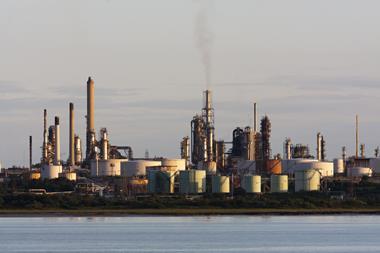
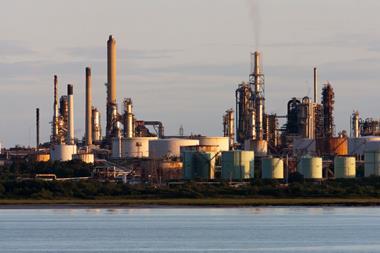
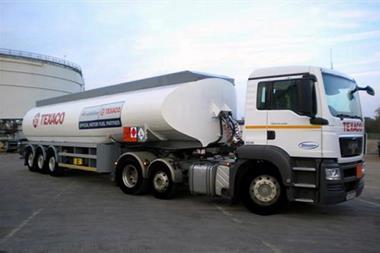

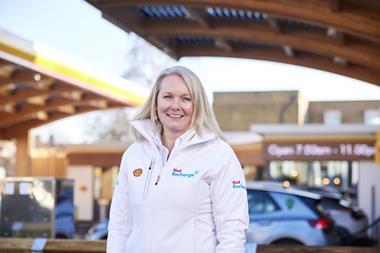


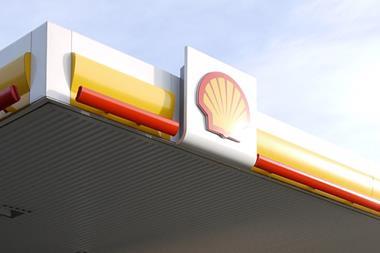
No comments yet